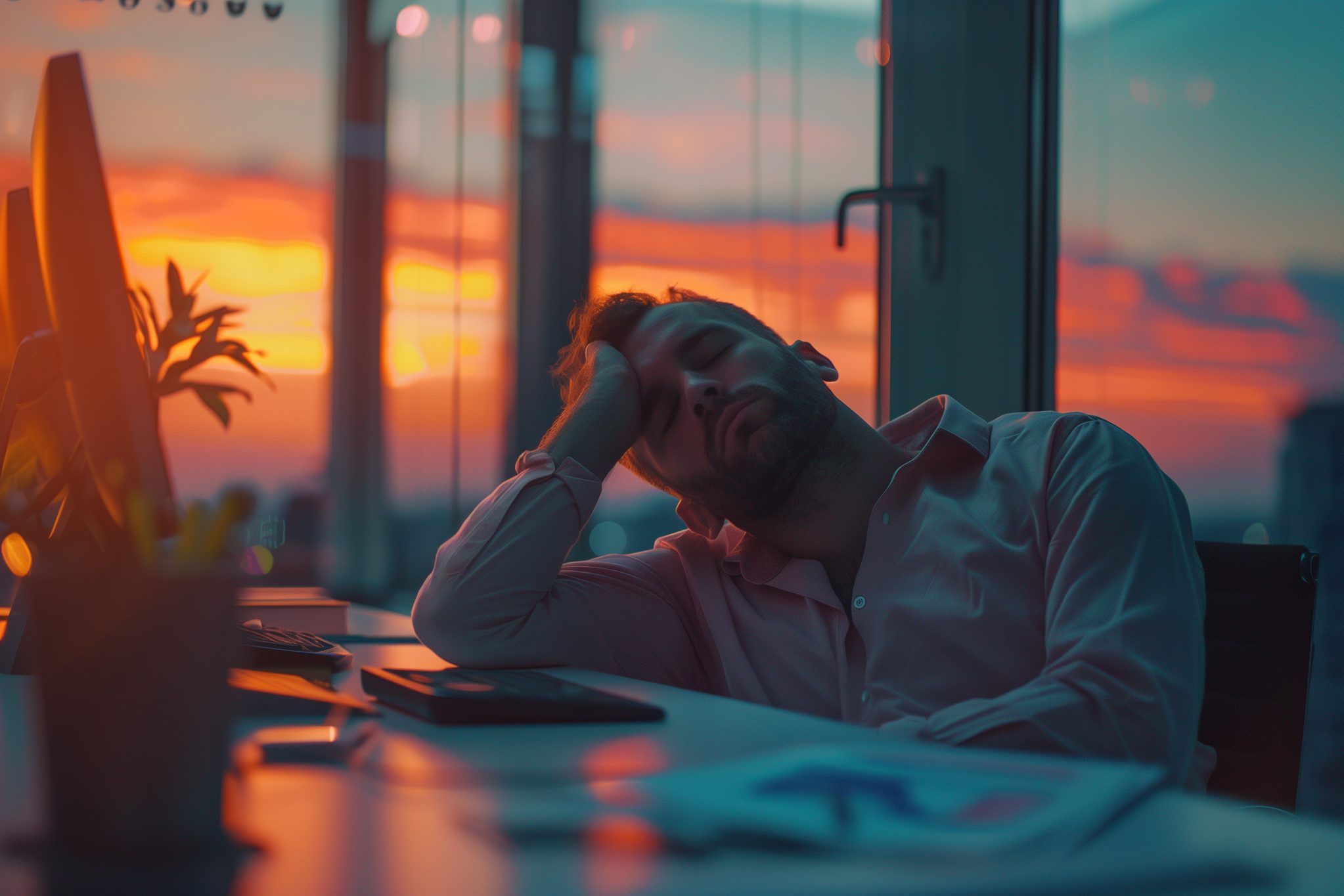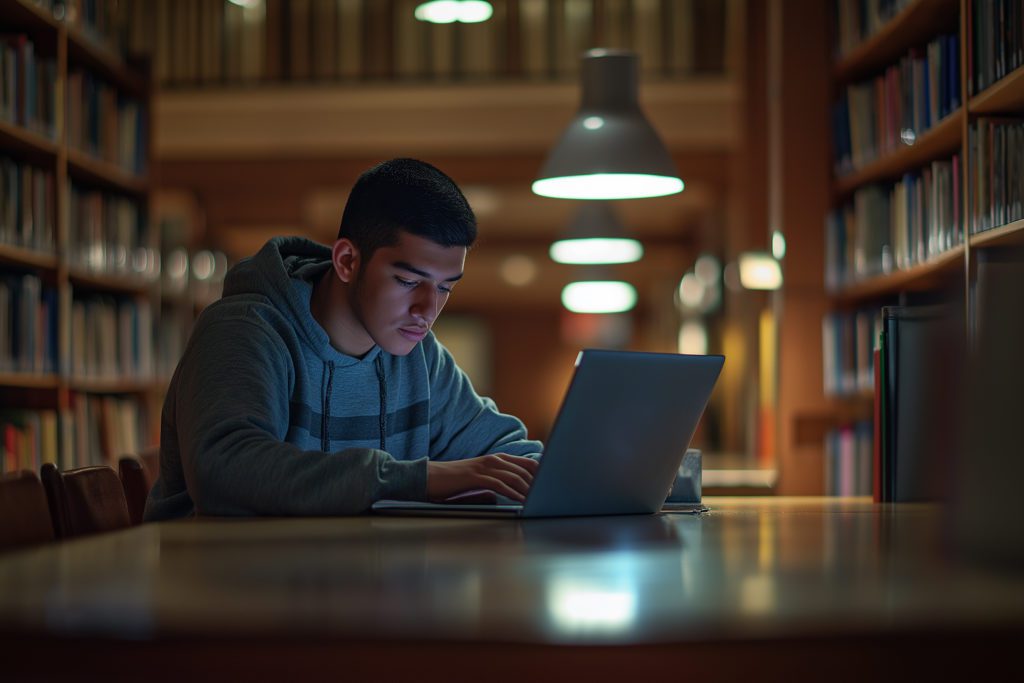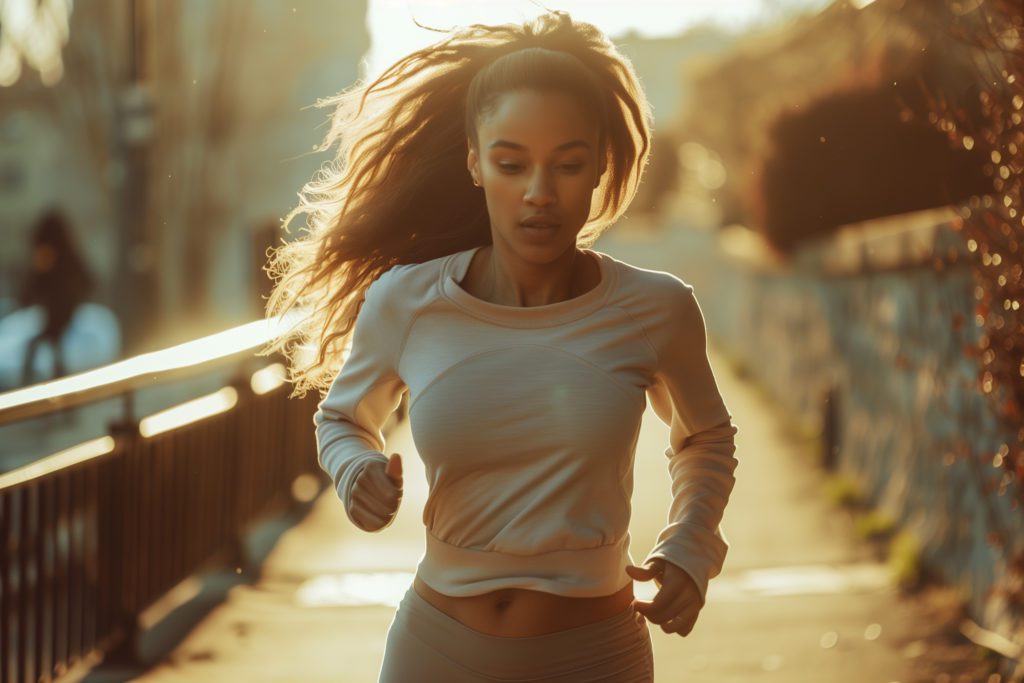
No Sleep Last Night? Here’s How to Best Handle the Situation
Learn tips for getting through the day following a sleepless night, including exercising, getting sunlight, and eating a balanced diet.

We’ve all had those nights where we spent more time awake than asleep. Maybe you had a late-night event, or perhaps your mind wouldn’t calm down enough to fall asleep, and you spent the night staring at your ceiling.
Whatever the reason behind your sleeplessness, it can leave you undoubtedly less lively than usual. However, you still need to face the day, and armed with the below tips, you can accomplish just that.
Your Brain on No Sleep
Thanks to brain imaging, we can see how a brain functions with little sleep. While it’s likely no surprise that a tired brain struggles to make decisions or remember things, did you know this is because the brain isn’t getting enough blood flow? Namely, research has shown that the prefrontal cortex (the part of the brain responsible for decision-making and memory) has reduced blood flow following sleep deprivation.
So, be kinder to yourself when you’re running on no sleep; your brain is doing the best it can, and that simply isn’t the same as what its best is when you’ve had a full night of sleep. However, there are some things you can do to help you get through the day and still maintain a bit of productivity.
How to Power Through the Day After a Sleepless Night
As much as your bed may call to you after a sleepless night, there are to-do lists to tackle and tasks that need to be done, so the bed will have to wait until later. Still, how can you find the energy to complete your work when your energy store is depleted? Here are some tips to help:
Sunlight, Sunlight, Sunlight
When you’ve had a sleepless night, the first thing to do is to get outside, or at the very least sit by a window and get some sunlight. This is because sunlight helps to maintain your circadian rhythm, which is the body’s internal clock that, among other things, regulates your sleep/wake cycle.
Sunlight signals to the body that it is time to be awake, which can help ease some sleepiness. But, perhaps more importantly, sunlight can help get your sleep schedule back on track so you can easily fall asleep at night, breaking the disjointed sleep cycle.
Beyond decreasing sleepiness, being outside can also help reduce your stress levels, so if you’ve ever been stressed because of how little sleep you got the night before, taking a step outside may help. Nature can also mentally invigorate you, which may be just what you need to get your brain’s juices churning in preparation for your day.
Eat Strategically
When you’re running on little or no sleep, you need to focus your attention on what you use to fuel your body.
Prioritize balanced meals and snacks today (ideally, every day, but especially today) that hit all your macronutrient needs. The less processed the food, the better; processed foods (along with sugar and carbs) offer a quick burst of energy but leave you feeling more tired and hungry. If you’re already tired, you won’t want to play into this cycle.
Additionally, make sure that you aren’t skipping meals. Otherwise, you may experience increased moodiness due to glucose dips, and you’re probably feeling irritable enough after your sleepless night.
Don’t Overdo the Caffeine
If you had a sleepless night, you might think that caffeine is the only way you’ll make it through the day, but you want to be careful not to overdo it. Caffeine will give you a boost, but having too much (especially if you’re sensitive to caffeine) can make you less interested in food (which your body needs for energy) and can make it more difficult to fall asleep at night, potentially causing more sleepless nights.
So, don’t go crazy with the caffeine, and stick to coffee or tea instead of energy drinks full of sugar because the sugar will only lead to a crash later on.
Try a Power Nap
If you got no sleep last night, a power nap can help increase your focus and productivity. The key, though, is the nap’s length. Stick to 20 minutes or less; once you hit 30 minutes, you run the risk of sleep inertia, which is when you wake up confused and even more tired.
Get Moving
While it may seem impossible to fathom exercising when you’re this tired, staying active can help to keep you alert. This is because exercising increases your core metabolic rate for hours after you stop exercising. So, for the best effects, get some exercise in during the morning to see the energy boost all day long. For even better results, exercise outside where you can soak in some sunshine.
The type of exercise doesn’t matter, either. Lift weights, walk, or just dance around. Whatever gets your heart pumping will help you out.
Save Big Decisions for Tomorrow
While the above tips have all discussed the things you can do to make it through the day following a sleepless night, let’s discuss what you shouldn’t do: make big decisions or work on important projects.
As we’ve discussed, sleep deprivation reduces blood flow to the prefrontal cortex, which is the part of the brain responsible for making decisions and performing complex thought processes. So, when you haven’t slept, you’ll want to avoid evaluating, analyzing, or planning, as your brain won’t be able to do it as effectively.
Take today as a break from big decisions and projects and push any non-priority tasks to tomorrow when you’ve had the chance to sleep.
Don’t Let a Sleepless Night Ruin Your Day
Whatever the reason for your sleepless night, the following day doesn’t have to feel like a waste. By getting sunlight, exercising, eating a balanced diet, and power napping, you can increase your energy, boost productivity, and make it through the day.
When bedtime rolls around, though, make sure that you’re giving yourself enough time to sleep, and focus on sleep hygiene practices such as creating an ideal sleep environment to help you fall and stay asleep. Break the cycle of sleeplessness, and tomorrow you’re feel much more energized.
For more sleep tips, Pillow offers resources and guides to help you fall asleep and improve your wellbeing.
FAQ
Can meditation aid in recovery after a sleepless night?
Yes, meditation and mindfulness reduce stress, improve focus, and promote relaxation, helping to counteract the effects of sleep deprivation. Even short sessions can enhance mental clarity and cognitive function, making it easier to get through the day after little to no sleep. Guided breathing exercises can also help.
Can music help counteract the effects of sleep deprivation?
Yes, listening to music—especially calming or upbeat tunes—can help boost mood, reduce stress, and enhance focus after a sleepless night. Music with a steady beat stimulates brain activity, improving cognitive performance and alertness. Background instrumental music can also aid concentration and productivity.
Is it advisable to use energy drinks to combat fatigue after no sleep?
No, energy drinks contain excessive caffeine and sugar, causing energy crashes and disrupting future sleep patterns. They can also lead to jitters, anxiety, and heart palpitations. Instead, opt for moderate amounts of black coffee or green tea, paired with proper hydration and nutrient-dense foods to sustain energy.
Can taking a cold shower help after a sleepless night?
Yes, a cold shower stimulates blood circulation, increases heart rate, and activates the nervous system, helping to reduce grogginess and boost alertness. Alternating between hot and cold water can further enhance circulation and mental clarity, making it easier to stay awake.
Can aromatherapy help combat sleep deprivation effects?
Yes, essential oils like peppermint, eucalyptus, and citrus scents can boost alertness, while lavender and rosemary can help with stress relief. Inhaling energizing scents or using an essential oil diffuser may help maintain focus and reduce fatigue throughout the day.

Written by
Jessica G
Medical writer freelancer who has written hundreds of articles on varying topics. Masters of Engineering degree in Biomedical Engineering.
Download Pillow
Get help
Press & News
Legal
Connect
X (Twitter)
Company
Copyright © Neybox Digital Ltd.



